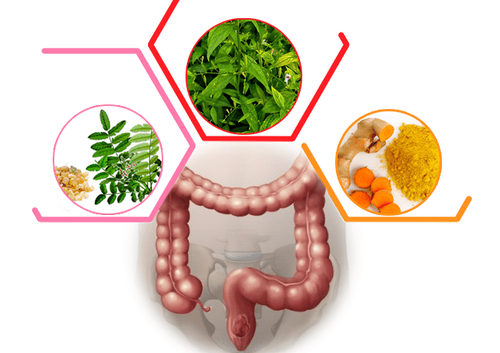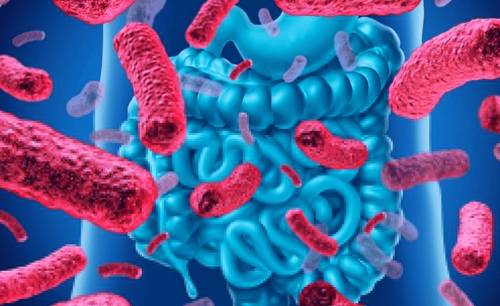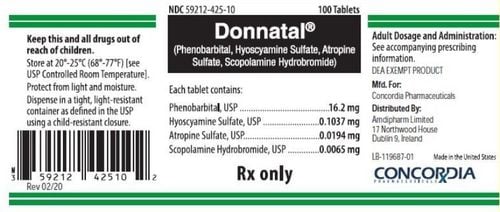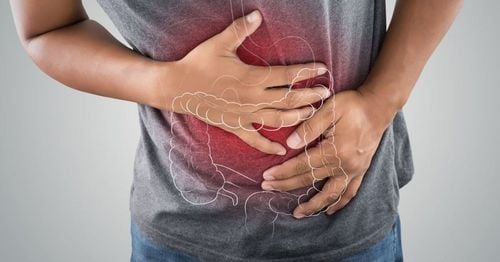This is an automatically translated article.
Posted by Master, Doctor Mai Vien Phuong - Department of Examination & Internal Medicine - Vinmec Central Park International General HospitalUlcerative colitis causes inflammation and sores in the lining of the colon and rectum. As the inflammation worsens, the cells lining the area die, leading to bleeding and infection. Therefore, timely and appropriate treatment is required.
1. Causes of Ulcerative Colitis
There is no exact cause of ulcerative colitis. Many experts believe that the disease is the result of an abnormality of the immune system and an inability to handle bacteria in the digestive tract.
2. Diagnosis of ulcerative colitis
To make a clear diagnosis, your doctor may ask you to perform various tests. Tests to diagnose ulcerative colitis are usually stool tests, upper gastrointestinal endoscopy, colonoscopy... You can learn more about these diagnoses in the article below.
MORE: Tests to diagnose bleeding colitis
3. Diet and nutrition
The best way is to consume smaller amounts of food throughout the day, avoiding rough and high fiber foods if this is a problem food for you. Foods to avoid with UC include:
Nuts Seeds Beans Grains Fatty and greasy foods also contribute to inflammation and pain. In general, safe foods include:
Low-fiber cereals Grilled chicken, pork and fish Steamed/baked or stewed fruits and vegetables Drinking small portions of water throughout the day can aid digestion and help reduce weight loss. inflammation. In addition, anxiety and stress can worsen symptoms. Exercise and relaxation techniques that help you manage and reduce stress levels can be helpful, including these:
Biofeedback Massage Therapy Meditation

4. Drug use
The doctor may prescribe medication to induce or maintain remission. Although there are several types of drugs, each drug is divided into four main categories.
Aminosalicylate These medications contain 5-aminosalicylic acid (5-ASA), which helps control inflammation in the gut.
Aminosalicylate can be used:
By mouth Via enema In one suppository They usually take 4 to 6 weeks to work. However, they can cause side effects, including:
Nausea Vomiting Heartburn Diarrhea Headache Corticosteroids This class of steroids includes prednisone, budesonide , methylprednisolone and hydrocortisone - which help reduce inflammation.
They are often used if you have moderate to severe ulcerative colitis, even if you have not responded well to 5-ASA drugs.
Corticosteroids can be given orally, intravenously, through an enema, or in suppositories. Side effects include:
Acne Facial hair Hypertension Diabetes Weight gain Lightheadedness Loss of bone mass Increased risk of infection Ideally short-term steroid use to lessen the impact of an episode ulcerative colitis flare-ups, rather than as a daily medication to control symptoms. When ulcerative colitis is very severe, your doctor may prescribe a daily dose of steroids to help you maintain a normal lifestyle.
Immunomodulators These drugs include azathioprine and 6-mercapto-purine (6-MP), which help reduce immune system inflammation - although they can take up to 6 months to work.
Immunomodulators are taken orally and are often used if you have not responded favorably to the combination of 5-ASA and corticosteroids. Potential side effects include:
Pancreatitis Hepatitis Decreased white blood cell count Increased risk of infection Biologics This is a newer class of drugs used as an alternative to immunomodulators to treat ulcerative colitis colon in people who have not responded well to other treatments.
Biology is more complex and targets specific proteins. They can be given through an intravenous infusion or an injection. Currently, there are several FDA-approved biologics for the treatment of ulcerative colitis:
Tofacitinib (Xeljanz) Adalimumab (Humira) Golimumab (Simponi) Infliximab (Remicade) Vedolizumab (Entyvio)

5. Surgery
If other forms of treatment do not work, you may need surgery.
Some people with UC eventually decide to have their colon removed due to bleeding and serious illness - or increased cancer risk.
Four types of surgery exist:
Restorative hysterectomy with ileostomy-analectomy Total abdominal resection with hysterectomy Total abdominal resection with terminal ileostomy Total hysterectomy with resection terminal ileum If you have ulcerative colitis, avoid taking nonsteroidal anti-inflammatory drugs (NSAIDs), which can make symptoms worse.
Talk to your doctor to find the treatment that best meets your healthcare needs.
Also, because of the increased cancer risk associated with ulcerative colitis, schedule an annual or biennial exam, as recommended by your doctor. With the right approach, you can manage ulcerative colitis and live a normal lifestyle.
Vinmec International General Hospital system deploys General Health Checkup Packages and performs paraclinical tests suitable for each subject. Customers will be directly taken by the doctor to take personal and family medical history, measure blood pressure, body mass index, physical examination, perform screening tests as well as advice in each situation.
With a team of professional, highly qualified and experienced doctors, modern facilities, and a system of advanced and state-of-the-art testing machines, the periodic health check-up at Vinmec deserves to be an address. Reliable, world-class quality medical care for everyone and every family.
6. The Ulcerative Colitis Diet
There is no specific diet for UC. Each person reacts to food and drink differently. However, some general rules may be helpful for those trying to avoid flare-ups:
Eat a low-fat diet: It's not clear why a low-fat diet is beneficial, but people know that high-fat foods often cause diarrhea, especially in people with IBD. Eating more low-fat foods can slow flare-ups. When you eat fats, choose healthier options like olive oil and omega-3 fatty acids. Get more vitamin C: This vitamin can have a protective effect on your intestines and help them heal or recover more quickly after a flare-up. Those who ate a vitamin C-rich diet experienced prolonged UC remission. Foods rich in vitamin C include parsley, bell peppers, spinach, and berries. Eat plenty of fiber: Fiber can help you stay regular. It may also improve how easily you have bowel movements. Ulcerative colitis can be difficult to treat. However, there are many different treatment options. Talk to your doctor about your symptoms so he or she can develop a treatment plan that's best for you.
Please dial HOTLINE for more information or register for an appointment HERE. Download MyVinmec app to make appointments faster and to manage your bookings easily.
Reference article source: Stanford Medicine. (2020). Stanford scientist links ulcerative colitis to moissing gut microbes, What is ulcerative colitis? (n.d.).














